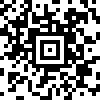I do. The is “el/la” and a is “un/una”.
In my dad’s language and my second language, it’s “the” and “a”
Yes. In danish either “en” or “et” goes in front of nouns like this: “en kat” and “et hus”. This is equal to “a cat” and “a house”.
If it’s in specific, it goes at the end of the word instead like this: “katten” and “huset”. This is equal to “the cat” and “the house”.
Yes.
English.
I’ve heard of that one. I think the is “the” and a is “a”.
I believe that “a” is either “a” or “an”; it depends.
Also sometimes “an”.
Truly a terrible language.
russian, nope!

Mandarin:
No “the,” you just say the noun and that’s it.
“A” or any other quantity of a noun is generalized as a number, followed by a character indicating quantity, followed by the noun. “An apple” is 一个苹果 (yi ge ping guo), 一 literally means one, 个 is the character that denotes quantity (it’s the most common one but some nouns have different quantity adjectives), 苹果 is apple. Two is an exception because there’s a special character for it that’s different from the number two (两个苹果 as opposed to 二个苹果), but every other number quantity is the same as the number itself.
I like Chinese as a language
Yes, we do.
“Il/lo/la/i/gli/le” instead of “the”, the precise article is chosen taking in consideration gender and plurality. We even have elliptic forms with " l’ ," for words starting with a vowel.
Then we have “un/uno/una” instead of “a”. Again elliptic form "un’ " for feminine words starting with a vowel.
Italian here 🤌
Portuguese, we do and we use it in everything. Even something simple like “for my Father” most of us say “for the my Father”.
“Sou filho do meu pai”
Translating literally becomes:
“am son of the my Father”
That’s not true for all Portuguese speakers. Most brazilian northeasterners don’t use it as you described, as it’s unnecessary.
Edit: The way I would say the sentences above:
“Pra meu pai”
“Sou filho de meu pai”I was gonna edit the comment to add a similar note right after posting but I was already half asleep and apparently I didn’t do it.
Estou a aprender o português!!
In german we have der/die/das for the and ein/eine for a.
Don’t tell them about the noun cases though
And also completely unhinged declensions for them… Really, WTF Germany? 😭
No (Korean), and it is what Korean people including myself often have trouble with.
Funny story. I know an old Chinese man who has a stutter. When he starts a sentence he often repeats the the the the the before he gets going. It sounds like removed removed removed. So far no one has confronted him but I always worry it will happen some day.
deleted by creator
A very bad word that we’re not even supposed to say on the internet, believe it or not.
Oh nooo 😭
Icelandic has no word for “a.” A noun without a definite article suffix can be either “noun” or “a noun.” Then there is a suffix for definite article (epli “apple” -> eplið “the apple”). There is also a slightly more obscure hinn/hin/hið which can mean “the” as a separate word, but that’s not really used in most situations.
In German we have three genders for words, neutral, female and male. These are spread around pretty randomly:
Die Tür / The Door is female Das Auto /The Car is neutral Der Bus /The Bus is male
We also have ‘ein’ which is the equivalent of “a” in english. Ein Auto / A Car.
The difference is the same as in german, one is specific, the other more general.
No we don’t (Slovak)
Si exista en Español y inglés, son artículos definidos ( el, la, los, las ) y artículos indefinidos ( un, una, unos, unas )
Yes, they exist in Spanish and English, as indefinite articles ( a, an ) and definite articles, which English has one ( the )
Japanese does not to my knowledge have any articles, これは何 could mean what is this or what are these. りんご could be one or more apples.
idk
















